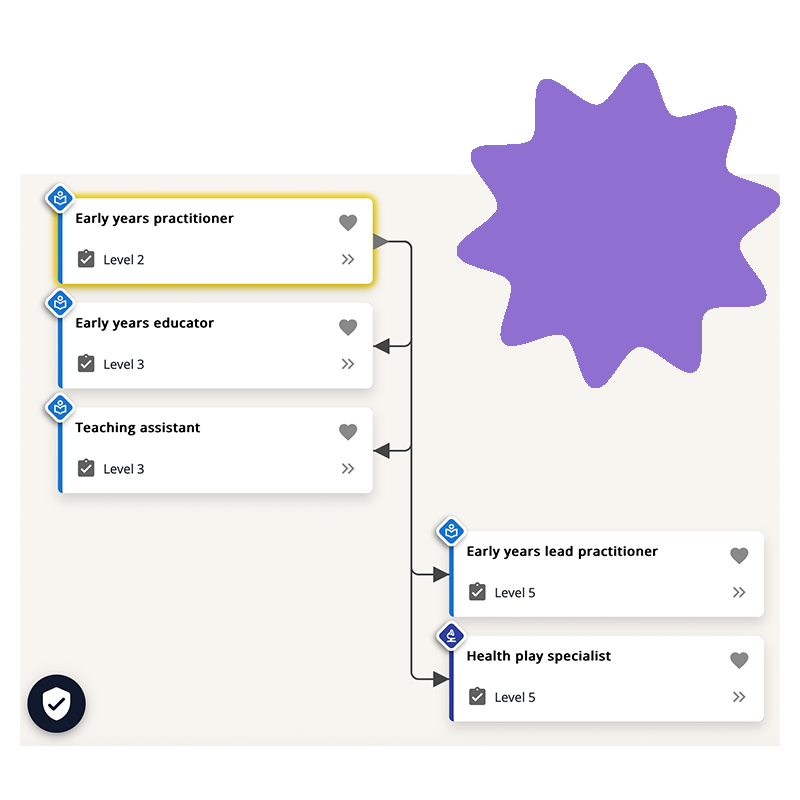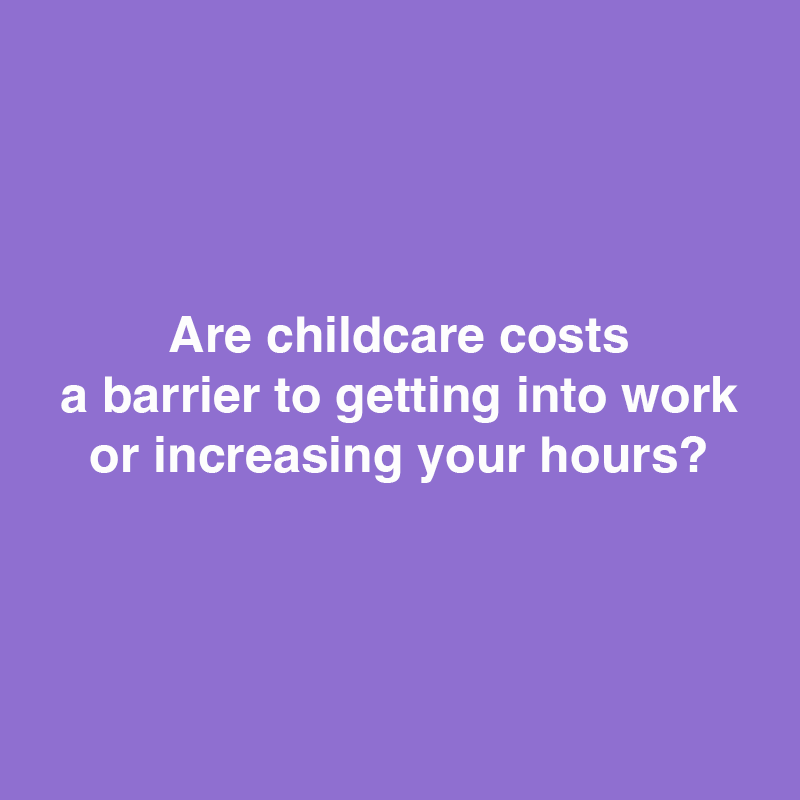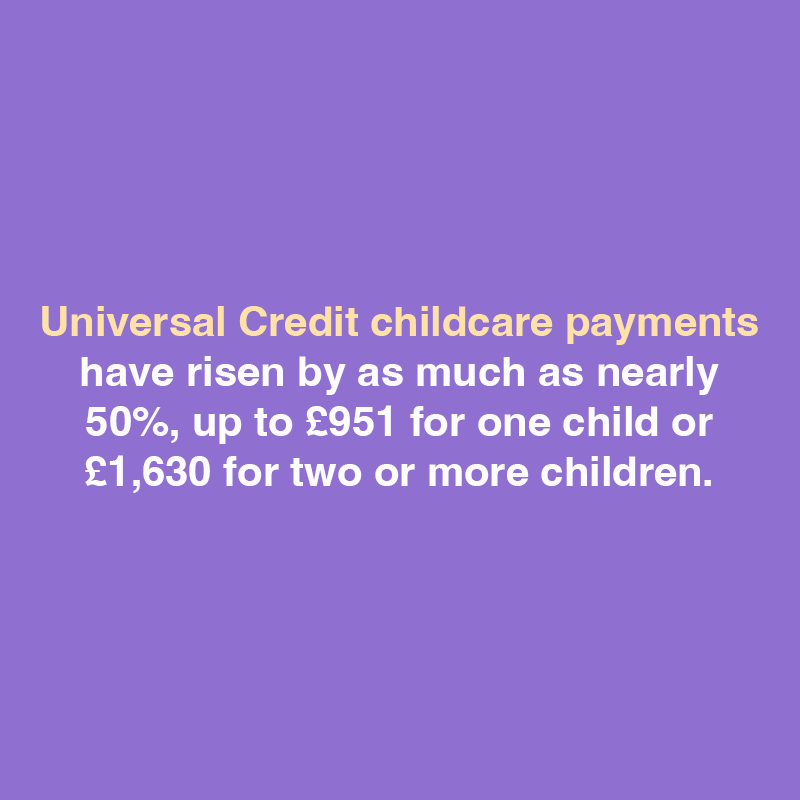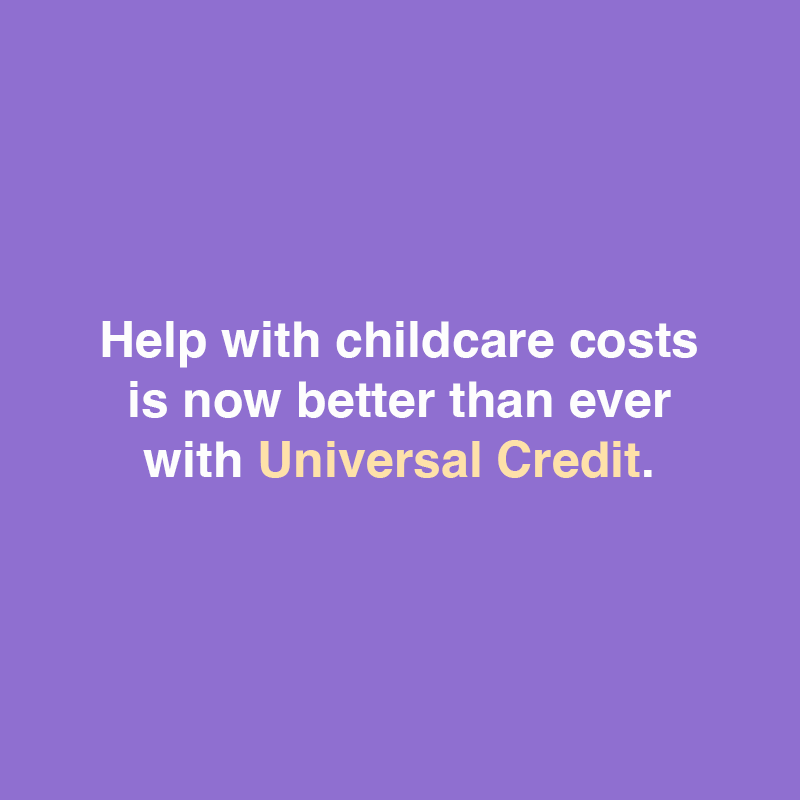Early Years

Find A Job in the Early Years Sector today!
Explore the Find a Job page and Search by Early Years or look in the Education Jobs advert category.
What is the Early Years sector?
The early years is a vital part of a child’s education when they develop the cognitive, social and emotional skills that set them up for life. Early years professionals are crucial in helping children develop before starting school. They plan and run education, play activities with children under five years old, and make sure they’re safe and happy. It’s a joyful and rewarding job where you will get to see children learn and grow as a result of the support that you offer.
Early years professionals are needed in a range of different settings across the Liverpool City Region, such as day care centres, pre-schools, nursery schools, reception classes, playgroups, hospitals and, as childminders, in their own homes.
Why work in Early Years?
Early years education is one of the Government’s key priorities. Research has repeatedly demonstrated that youngsters who have been exposed to positive role models from an early age are more likely to realise better social and educational outcomes and get the best possible start in life. Across Liverpool City Region there are opportunities to work with children during their formative years in a way that will significantly impact on their lives.
Whilst the children you work with may only be part of your working day, to them, you are their childhood.
There are many reasons why working in childcare can be a positive, enriching and rewarding career. With the industry growing at a rapid pace, there are great opportunities to train at a higher level.

Let’s hear from the Early Years professionals…
How can I enter the Early Years Profession?

There are many routes into the Early Years profession, many of which will offer you the flexibility that you need to ensure a work/life balance. You can find more here.
If you want to find out what roles exist within the sector and the pathway to get there, then you can explore the iFate Occupational Maps. You can find out more about Occupational Maps here.
Early Years Apprenticeships
During their training, early years apprentices can be included in the unqualified part of the staff to child ratios in an early years setting if their employer is happy that they are competent and responsible.
Once a level 2 or 3 apprenticeship has been achieved, those with the qualification can be counted in level 2 and 3 staff ratios respectively. Those who have achieved a level 3 early years apprenticeship will need to have obtained suitable English and maths qualifications in order to count in the level 3 child : staff ratios.
Social care, residential care and learning, development and support services apprenticeships are not full and relevant for the EYFS staff ratios.
Early Years Degrees
Early childhood studies (ECS) and related degrees
Staff who graduated since 1 September 2014 with a degree in early childhood studies (ECS), or a related degree, count at level 3 in the staff:child ratios as long as they:
- took a qualification that was consistent with the QAA subject benchmark statement for ECS (training providers will provide this clarification)
- took a qualification with an element of assessed performance in an early years setting
hold suitable level 2 literacy and numeracy qualifications
Early childhood studies degrees with early childhood graduate practitioner competencies
Staff who have graduated since July 2019 with a full and relevant qualification as stated on post Sept 2014 qualifications, with an early childhood studies degree and early childhood graduate practitioner competencies have taken a qualification that was consistent with the QAA subject benchmark statement for ECS.
They have met early childhood competencies demonstrating practice, skills and knowledge at level 6.
These graduates can be counted as full and relevant at level 3 in the staff: child ratios as long as they:
- took a qualification with an element of mentored and assessed performance in an early childhood setting
- hold suitable level 2 literacy and numeracy qualifications
- graduated from an institution listed as a member of the Early Childhood Studies Degree Network (ECSDN)
T-Levels
An early education and childcare T Level will meet the Early Years Educator criteria. On successful achievement the student has achieved the EYE Occupational Specialism of the T Level in Education and Childcare, the young person can count in the level 3 ratios. Read more about T Levels.
Are you a Parent/Carer?
If you are a parent or carer looking for support in accessing childcare, you can find out more about government support for you here.



The Rewarding Path to Becoming a Childminder
Are you passionate about caring for children and making a positive impact on young lives? If so, becoming a childminder could be the perfect career choice for you.
As a childminder, you have the opportunity to provide a nurturing and stimulating environment for children while enjoying the flexibility and autonomy of being self-employed. Overall, becoming a childminder is a highly rewarding, flexible, and meaningful career path that involves important responsibilities and making a real impact in your community.
The Pros of Being a Childminder
- 1.**Job Satisfaction**: There’s nothing more rewarding than witnessing the growth and development of the children in your care. Research has repeatedly shown that early education is essential for young children and their development later on in life. As a childminder, you play a crucial role in shaping young minds and creating a foundation for their future success.
- 2. **Self-Employment**: Being a childminder means you’re your own boss. You have the freedom to set your own schedule, choose your working hours, and tailor your services to meet the needs of families in your community.
- 3. **Flexibility**: Childminding offers unparalleled flexibility, allowing you to balance your work and personal life. You can choose to work around your family commitments, offer before or after-school care, or even operate during term time only.
- 4. **Financial Benefits**: While claiming benefits, you can still earn additional income as a childminder, subject to certain thresholds. This provides an excellent opportunity to supplement your income while pursuing a rewarding career.
- 5. **Variety**: As a childminder, you have the option to work alone, with an assistant, or even split your time between your own setting and another childcare facility. This variety keeps your work interesting and allows you to explore different working arrangements and environments.
- 6. **Support and Resources**: Organizations like the Childcare Alliance and PACEY offer valuable information, insurance options, and professional development opportunities to help you succeed as a childminder.
- 7. **Childminder Agencies**: You can join a childminder agency, which provides funding, support, and eliminates the need for Ofsted inspections until you decide to leave the agency.
- 8. **Flexibility in Location**: You don’t necessarily need a dedicated space or a garden to become a childminder. With the right permissions, you can operate from a flat, terraced, or semi-detached house, making it accessible to a wide range of living situations.
- 9.**Helping to make a difference**: By providing care and education for young children, childminders can make a real impact in their local communities. By helping to set kids up on a good path, the work that childminders do leads to a fundamental investment in the future of our city region.
Addressing the Cons
While the pros of becoming a childminder are numerous, it’s important to address some potential concerns:
- 1. **Ofsted Visits**: While Ofsted visits may seem daunting, they are designed to ensure the highest standards of care for children. With proper preparation and adherence to regulations, these visits can be of benefit.
- 2. **Training Requirements**: Mandatory training, such as the Early Years Foundation Stage (EYFS) Statutory Framework, Paediatric First Aid (PFA), and Safeguarding, is essential to ensure the safety and well-being of the children in your care. While some training may require an investment, it equips you with the necessary skills and knowledge to excel in your role.
- 3. **Insurance and Background Checks**: Public Liability Insurance and Criminal Records Bureau (CRB) checks for yourself and household members over 16 are mandatory requirements. These measures protect both you and the children in your care.
- 4. **Documentation**: Maintaining policies, procedures, and risk assessments may seem overwhelming initially, but they are crucial for ensuring a safe and well-organized childminding environment.
- 5. **Regulation**: While being regulated by the government may seem daunting, it ensures that childminders adhere to high standards, providing families with peace of mind and ensuring the well-being of children.
Becoming a childminder is a rewarding and fulfilling career path that offers flexibility, job satisfaction, and the opportunity to make a lasting impact on young lives. By embracing the challenges and taking advantage of the available support and resources, you can embark on this exciting journey with confidence and enthusiasm.
Are you interested in returning to the profession?
There are many reasons why staff may have left Early Years and pursue careers elsewhere. However the passion, skills, and love of working with young people remains.
The sector is changing with more opportunities and routes to progress and develop. Early Years is also growing in size, demand and stature. What hasn’t changed is the joy of working with children, the impact you can have on their lives, and every day will still be different.
If you would like to talk to someone about getting back into the Early Years Sector then please fill out this form and someone will get in touch to support you*.

TRANSFER YOUR APPRENTICESHIP LEVY FUNDING TO LCR EMPLOYERS IN THE EARLY YEARS SECTOR
Investing in apprenticeships in the Early Years sector will increase the qualified staff entering the sector as it provides a clear progression route for staff. This will lead to an increased workforce in the sector and allowing parents to enter full time employment, increasing employment and the local economy.
To discuss why and how directing your Apprenticeship Levy towards local Early Years providers can be the right fit for your organisation, and the communities that you serve and operate in, please register by CLICKING HERE or by visiting: https://bemorestage.awtg.co.uk/levy-pledge/
*Your information:
Your details with be passed to a specialist Early Years Champion within DWP locally who will contact you to discuss opportunities tailored around your skills and experience to return to the sector in the locality you prefer – as well as potential routes pathways to developing your career further.
They can also put you in touch with organisations who may be able to offer further advice and support such as LCR-CA Employment and Skills colleagues and Local Authority Early Years teams.
Details of the LCR Be More privacy notice and terms and conditions can be found by clicking HERE or by visiting: https://bemorestage.awtg.co.uk/privacy-policy/
 Afrikaans
Afrikaans Arabic
Arabic Chinese (Simplified)
Chinese (Simplified) Dutch
Dutch English
English French
French German
German Greek
Greek Hebrew
Hebrew Italian
Italian Japanese
Japanese Korean
Korean Kurdish (Kurmanji)
Kurdish (Kurmanji) Latvian
Latvian Lithuanian
Lithuanian Persian
Persian Polish
Polish Portuguese
Portuguese Romanian
Romanian Russian
Russian Slovenian
Slovenian Spanish
Spanish Sundanese
Sundanese Ukrainian
Ukrainian Urdu
Urdu Welsh
Welsh